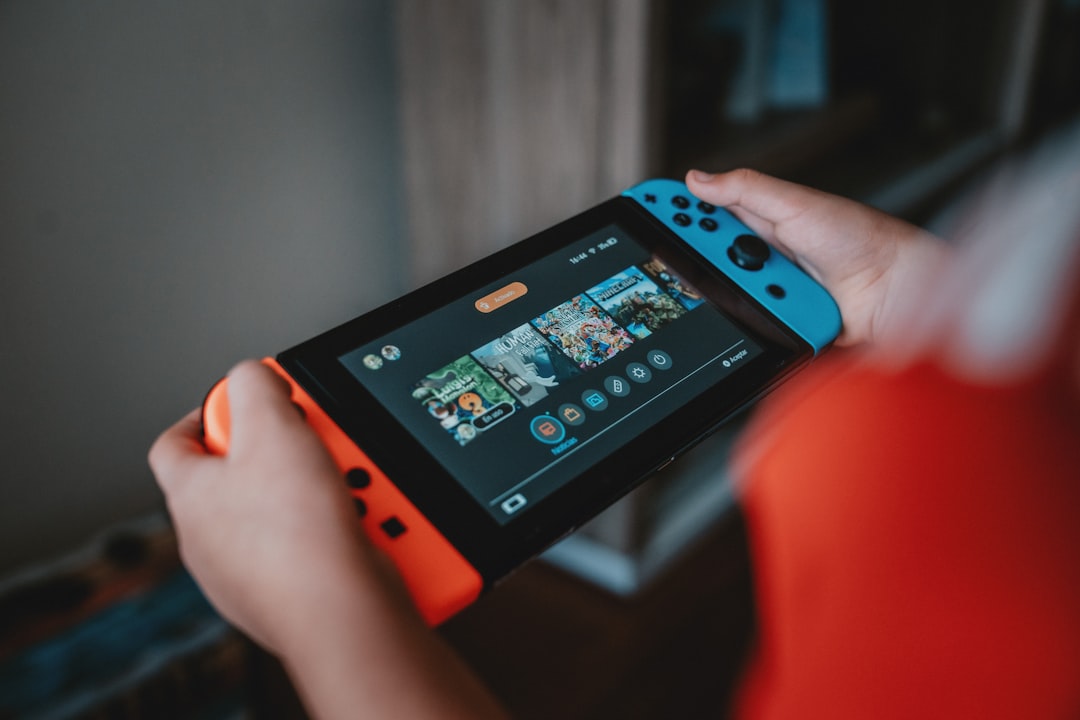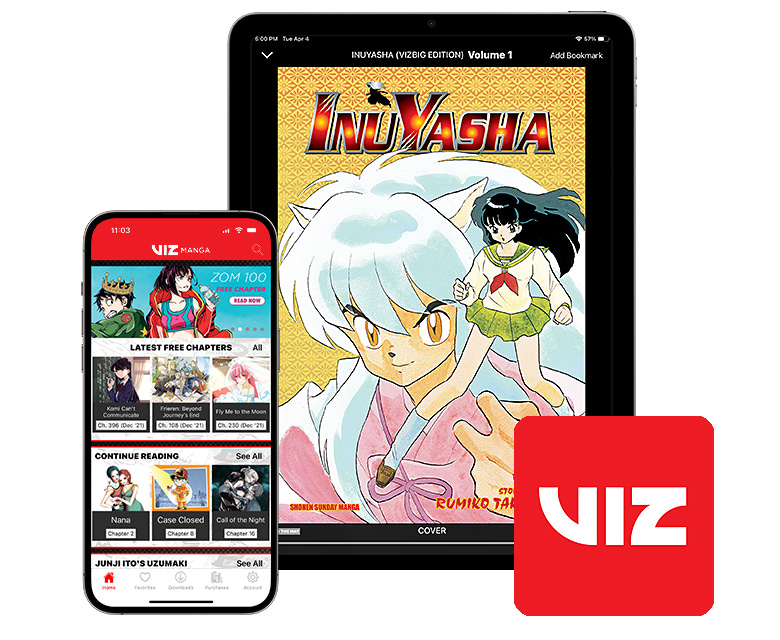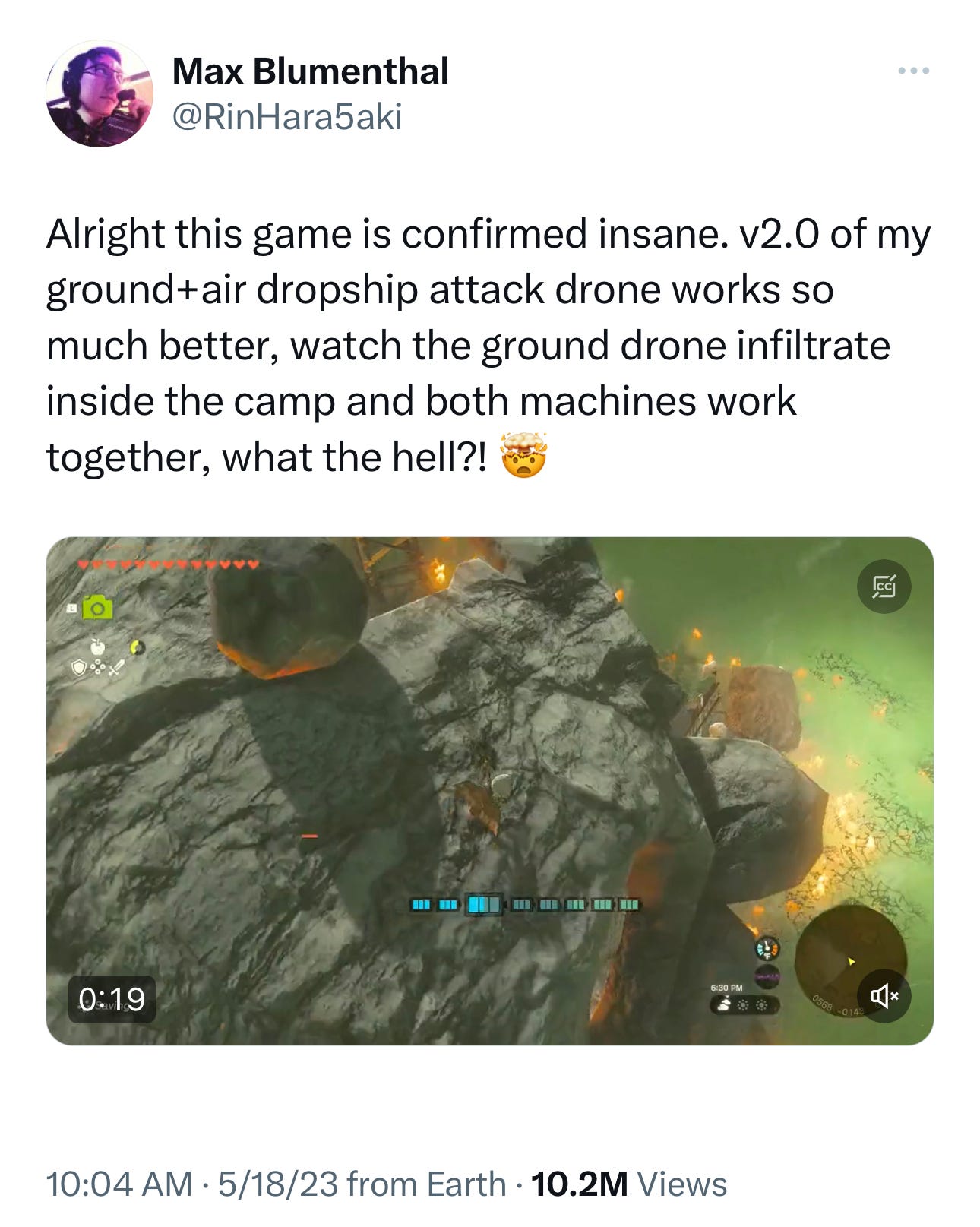Numlock Sunday: Ana Diaz on the biggest pop culture release of the year
By Walt Hickey
Welcome to the Numlock Sunday edition.
This week, I spoke to Ana Diaz of Polygon all about the new Legend of Zelda game and a fascinating new app that’s poised to change the way manga is consumed in America. Here’s what I wrote about her story about the latter:
Viz Media, the American publisher of Japanese manga, is launching a new app and $1.99 subscription service that aims to compete with the primary way that English-speaking fans consume new manga: namely, wildcat fan-made scanlation sites where fans translate — to varying degrees of success — ongoing manga in the time period between when the chapters are released in Japan and when the official translated volumes are released in the United States. Viz Manga has digital releases for 10,000 chapters of manga, with 15 series to be released to English-speaking readers on the very same day as the release in Japan. Combined with their Shonen Jump subscription, which currently has 35 million monthly reads on average, that’s 25,000 chapters of manga.
Ana’s work is excellent, and I wanted to talk to her about this smash-hit game release and why it’s not getting the kind of coverage from mainstream cultural publications that a movie of a similar scope would enjoy.
Ana can be found at Polygon, and she’s also on both TikTok and Twitter at @pokachee.
This interview has been condensed and edited.
Hey, thanks for coming back on.
Yeah, of course. Thanks for having me.
I am really excited to talk to you. You cover some of my favorite beats and I really enjoy the work that y'all do at Polygon. This has been a really big, auspicious month for y'all. So I wanted to talk today about two huge mediums, manga and video games, that don't necessarily get the kind of coverage I think it's sometimes warranted, but you folks are all in on it.
To kick it off, you wrote a story a few weeks ago about how there's essentially a new manga app that is explicitly trying to target American consumers in a way that they have been neglected in the past. What does this mean for how manga is consumed in America?
Just to give a bit of context, Viz Media has released a new app that they are calling Viz Manga, and it's an app and subscription service, so kind of similar to Netflix. Essentially, what this is going to do, it is going to expand access to manga stateside. That doesn't just mean the number of titles that are easily available digitally, but also, it's going to provide simul-publication, which is a term for same-day publication translation, so that English readers will get access to a lot of beloved manga the same day as Japanese readers as well, which has historically been a rarer occurrence in the industry.
A lot of times you're reading fan translations online, there's maybe not even an official way to get it. What's the current status quo, and why is this so big?
It's really interesting, because this industry has long been propped up by fan work, and like you mentioned, fan translations. We call them scanlations, or scans and translations.
Actually, for a while, a lot of these translation qualities were very good, but just not accessible via legitimate means. So for the longest time — publishers obviously have varying opinions on this — depending on the point and period and who's talking, you get a level of approval to disapproval of this, as a fan activity.
But now the release of this app is an explicit rejection of the fan-made versions of these manga, on really popular websites like Manga Decks, for example. There's a twofold here; it's expanding access to manga, but also expanding legal access to manga to readers.
Fascinating. Manga's been one of the fastest growing things in all of books. It's regularly some of the bestselling books in America, so it seems like an acknowledgement of a market that has been very secondary for the Japanese producers of this.
I think it's definitely an investment in the future of manga. For a while, one of the more accessible popular apps to read manga was the Shonen Jump app. And it's a great subscription.
You get access to thousands of titles, but they typically fall within the shonen category. I would say "genre," but it's a little more complicated than that. Generally, shonen means "marketed at boys," but it's actually a pretty broad category that can include all kinds of stories. But historically speaking, there are other subscription services, but this basically will give fans another way to access non-shonen manga in the U.S. in a very easy way.
I've always enjoyed coverage of the manga business just because it is like, if you talk to librarians or people who follow the book industry, they're always saying that this is some of the most popular thing out there and it just doesn't seem to get the kind of mainstream attention that other book mediums get.
I definitely think so. It's interesting you say that, because I think partially it's possible that there's a limited idea of what manga is, even, and the expansiveness and diversity of the stories. So something that was really cool for me to see is actually, even with the new Viz Manga app, Viz talked about explicitly bringing more LGBT manga to the U.S. So I think that there's also the chance that, as this becomes more common, people will start to see more sides of it.
Just to transition to the other gigantic elephant in the room when it comes to media, there's a new video game from Nintendo out. It sold, I believe, 10 million copies in three days.
Yeah.
That kind of number is surprising because this thing sells for 70 bucks. You're talking a $700 million business in three days. And for some reason, this isn't the top of the New York Times. What can you tell me about the reception to Tears of the Kingdom?
I mean, first, it's very easy to start with the critical reception, which has been largely positive. It's one of the highest rated games that's been released ever, when we consider the Metacritic score, which maybe take that... I don't always put all my weight into a Metacritic score, but it is a good barometer of where a bunch of people are, how a bunch of people are feeling about the game.
And it seems like it was a massive hit immediately.
It is a massive hit. And there's been a lot building up to it.
For context, this is the sequel to The Legend of Zelda: Breath of the Wild, which is one of Nintendo's most popular Zelda games and most popular games ever made. It's highly anticipated. It's coming roughly around five years after the last Zelda game. Unlike a game like Pokémon, which is still very, very popular, Zelda games aren't being turned out every year. It's like a once in a blue moon thing.
So folks were super excited. It's on a massively popular console, the Nintendo Switch, which is one of Nintendo's most popular consoles/handhelds. It is a sequel, but I think something, too, that's allowed this game to really thrive is that it also stands by itself. I have friends who have never played a Zelda game who have picked this up for the first time. So it's been really cool to see them experience Nintendo's world.

You and I were talking a little bit before the call about this, but it does seem like video game hits and video game coverage is treated a little bit differently than a lot of more movies and television is covered, despite the fact that people spend inordinate amounts of times on these games and they're very, very important to a lot of people. Polygon has been really, really up on video game coverage and taking them very seriously as both works of art and very lucrative business ventures. Why do you think that video games aren't necessarily treated the same way as other forms of media?
I think even that perception of things can vary depending on where you're getting your news and information. A lot of younger people maybe aren't going to traditional news media to get their news. They're going to streamers and content creators. And look, if you peer into those circles, Zelda is the thing. It's not just content creators in video games, but content creators in general will be paying attention to this game and using it as a way to connect with their viewerships.
But where we start to see less of the game as far as main coverage goes is in mainstream media. And I always think it's interesting to see maybe the lack of coverage, because it's like, technically speaking, this game is already, profit-wise, a larger game than the latest Marvel movie, right?
Yeah.
Marvel's Guardians of the Galaxy made, what, roughly $547 million at the global box office.
It did some pretty decent numbers, yeah.
Yeah, yeah. Now Zelda's already exceeded that! And so it's this complicated thing, but I think maybe part of it is just this general aging of the mainstream media. It's possible, but I think also depending where you look, it still is a big deal.
Yeah. The biggest opening weekend ever was Avengers: Endgame. And that was half of what Tears of the Kingdom pulled in the same opening weekend.
Well, and just to give context, about 50 of the highest grossing movies of all time grossed around $1 billion to $2 billion during their entire runs at the worldwide box office. And Zelda is already approaching that, and was approaching that in three days.
So I think it's a bit surprising to see, but I also think that maybe slowly folks are starting to catch up. Ironically, for 2023, the biggest movie so far has been the Mario movie, and so another video game franchise IP. We also got HBO's The Last of Us, also based on a video game, which was a breakout hit. So I think there are pockets of leadership at various companies outside of games are starting to see the importance here.
It was always interesting because I think there have been a lot of, let's be straightforward, unsuccessful video game adaptations.
And they often suffered from cutscene-itis where they were basically just attempting to recreate the experience of the video game. You alluded to two very big hits, The Last of Us and Mario, and those just really took the stories that were resonating with viewers who had played the game and ran with them.
I think it's a fun year for games because you mentioned the cutscene-itis and it does show the span of experiences that video games are able to afford. You have a game like The Last of Us, it's very linear, very narrative-driven, very constricted. But then something that fans have really loved with Zelda is the way it allows folks to just be in a play pen, and experiment and tinker with Link's powers to build things. So you get this full range of playground, to HBO drama, of experiences and games.
I have been surprised because, I'll put it this way, my perception has always been that Nintendo didn't really make games that went viral on the internet through videos. You could maybe make an argument for Animal Crossing at the very beginning of the pandemic, things like Twitch Plays Pokémon, potentially as phenomenons, but I am seeing clips of this game everywhere, like it's Fortnite, and that seems like it's a new thing for them.
My own perspective of this is going to be biased. My early internet experience was very dominated by Nintendo fandom and engaging with Nintendo games online. But I definitely think that it's growing to new levels.
I think this maybe, what was unlocked with Animal Crossing, was if you give the players the tools to experiment, they'll create their own game, and that will shine through. That honestly translates to free press. So if you see people building Venice in Animal Crossing and 100,000 people on Twitter like it, that's a really easy way to get your game out there. Perhaps that's a lesson that they learned with Animal Crossing. But now I think that Nintendo has long been — the Zelda developers specifically — have been hesitant to give fans too much open reign in the games. And now they're just letting players loose and it's like this wildfire of viral content online.
Yeah. I've enjoyed seeing all the various contraptions. Some of them are truly inspired.
Some of them are a little bit concerning, too.
Expand on that, please.
Oh, well, okay. I covered the release of the game throughout the weekend. One of the first trends that I saw emerge was that fans were using Link's new powers to torture these little forest spirits called Koroks online. So in the game you can run around and help these cute little plant creatures help find their friends. Of course, players immediately saw them and were like, "Oh, do you know what? We're just going to use this to shoot them into the moon." I don't actually feel super comfortable with them, but that was one of the early trends that emerged.
Where can folks find you and find your work?
Honestly, I'm probably trying to shift over to TikTok vis-à-vis Twitter. You can find me on TikTok and Twitter @pokachee. It's the same handle for both. You can also find my work on Polygon; basically every single time fans do something, I'm there documenting it and making sure that everyone else in the world gets to see it, too. You can just find me on Polygon along with a bunch of our other great Zelda coverage. Our guides are phenomenal, so I want to give a shoutout to our guides writers as well.
I guess I'll just ask, are you liking the game?
Oh, yeah, for sure. I mean, there are definitely things I don't like about it. I'm honestly not a building person, but this game is so massive that you can really pick and choose what you want to do. I wrote about this today, but I personally have really appreciated the more horror-esque elements to this game. There's an entire underground world that you can explore in darkness and it's very creepy and ominous and it's giant. I don't know, I personally have been having a lot of fun, just sinking all my time into exploring that specific area. There's a little bit for everyone.
Keep reading with a 7-day free trial
Subscribe to Numlock News to keep reading this post and get 7 days of free access to the full post archives.




